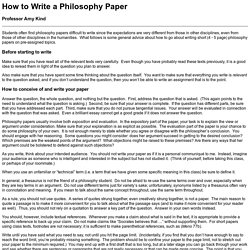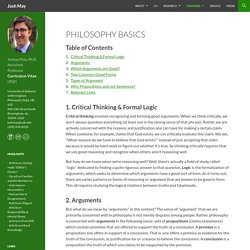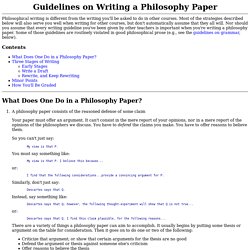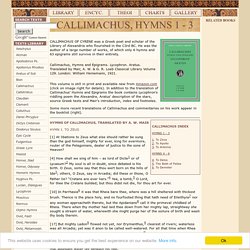

Travel guide to Pella Greece - My Favourite Planet. Pella Site and Museum times and tickets Pella Archaeological Museum (Αρχαιολογικό Μουσείο Πέλλας) Tel: (+30) 23820 32963 Website: www.pella-museum.gr (Greek only) See also: odysseus.culture.gr/h/1/eh155.jsp?

Obj_id=3460 Greek Ministry of Culture and Sports website (Greek and English) with details of opening times, tickets and reduced and free admission (e.g. children under 18, students, senior citzens) Ticket for museum and site: €6, reduced €3 There are toilets at the site and museum. The museum has a café with drinks and snacks. The visitor centre and shop at the south end of the archaeological site sells books, souvenirs and copies of antiquities. Both site and museum are accessible for wheelchair users. Viewing the site and the museum each take 30-60 minutes. Pella village has shops, a bakery, a post office, cafes and restaurants. Opening hours All times and days apply to the museum and archeological site. Summer: Tuesday-Sunday 8:00 - 20:00(Shop: 8:00 - 15:00) Public holidays. Hellenistic State / Ancient Greece 323-146 BC. An Outline of A Philosophy Paper. An Outline of A Philosophy Paper Although philosophy papers can appear very complex, they all follow a basic structure which can be modified to suit your needs.

Although it is written, a philosophy paper can be seen as a combination of a lecture and a conversation; your goals should be to combine the two. First, like a lecture, you must always make sure that your reader understands what you are saying. The burden of understanding is on the author not the reader. In other words, it is not simply up to the reader to struggle to understand the text -- although he or she must do that. Like a conversation, a philosophy paper requires making room for other opinions and for responding to that opinion. Some Basic Paper-Writing Tips: - When writing, don't think of the professor as the audience. . - Always define your terms. . - Pay special attention to paragraphs.
How to Write a Philosophy Paper. Professor Amy Kind Students often find philosophy papers difficult to write since the expectations are very different from those in other disciplines, even from those of other disciplines in the humanities.

What follows is some general advice about how to go about writing short (4 - 5 page) philosophy papers on pre-assigned topics. Before starting to write Make sure that you have read all of the relevant texts very carefully. Even though you have probably read these texts previously, it is a good idea to reread them in light of the question you plan to answer. Also make sure that you have spent some time thinking about the question itself. Sample philosophy papers. Philosophy Basics. Table of Contents 1.

Critical Thinking & Formal Logic Critical thinking involves recognizing and forming good arguments. When we think critically, we don’t always question everything (at least not in the strong sense of that phrase). Rather, we are actively concerned with the reasons and justification one can have for making a certain claim. Deductive and Inductive Arguments. A deductive argument is an argument that is intended by the arguer to be (deductively) valid, that is, to provide a guarantee of the truth of the conclusion provided that the argument's premises (assumptions) are true.

This point can be expressed also by saying that, in a deductive argument, the premises are intended to provide such strong support for the conclusion that, if the premises are true, then it would be impossible for the conclusion to be false. Philosophy at St Andrews: Essay and exam advice. The advice below is taken from the Philosophy Handbook for Undergraduates 2015/16.

You should also read Jim Pryor's essay writing advice for Harvard and Princeton students (follow this and you will not go far wrong). Another useful site is the Writing Tutor for Introductory Philosophy Courses. which illustrates how to revise a short philosophy paper through several drafts. Notice how much the paper improves with each revision. The final draft will also give you a standard to aspire to! Importantly, also see the University’s Good Academic Practice Policy.
Guidelines on Writing a Philosophy Paper. Philosophical writing is different from the writing you'll be asked to do in other courses.

Most of the strategies described below will also serve you well when writing for other courses, but don't automatically assume that they all will. Nor should you assume that every writing guideline you've been given by other teachers is important when you're writing a philosophy paper. Some of those guidelines are routinely violated in good philosophical prose (e.g., see the guidelines on grammar, below). Contents.
CALLIMACHUS, HYMNS 1 - 3. CALLIMACHUS OF CYRENE was a Greek poet and scholar of the Library of Alexandria who flourished in the C3rd BC.

He was the author of a large number of works, of which only 6 hymns and 63 epigrams still survive in their entirety. This volume is still in print and available new from Amazon.com (click on image right for details). In addition to the translation of Callimachus' Hymns and Epigrams the book contains Lycophron's riddling poem the Alexandra, Aratus' description of the stars, source Greek texts and Mair's introduction, index and footnotes. Some more recent translations of Callimachus and commentaries on his work appear in the booklist (right). [1] At libations to Zeus what else should rather be sung than the god himself, mighty for ever, king for evermore, router of the Pelagonians, dealer of justice to the sons of Heaven? [4] How shall we sing of him – as lord of Dicte1 or of Lycaeum? [10] In Parrhasia6 it was that Rheia bare thee, where was a hill sheltered with thickest brush. 1.
ETHICS. Hellenistic poetry. Ethics. Latin Core.